Early Years Reading Quotes & Sayings
Enjoy reading and share 14 famous quotes about Early Years Reading with everyone.
Top Early Years Reading Quotes
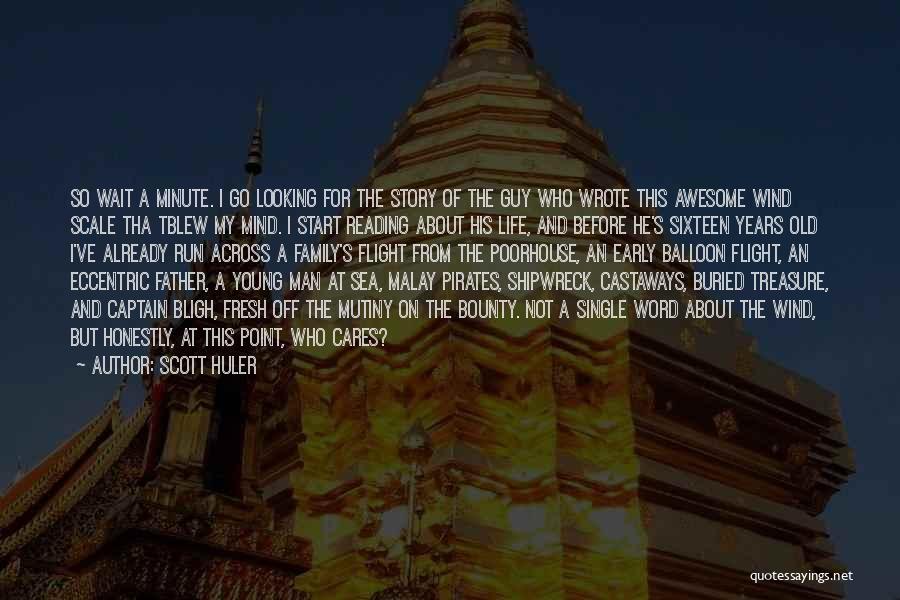
So wait a minute. I go looking for the story of the guy who wrote this awesome wind scale tha tblew my mind. I start reading about his life, and before he's sixteen years old I've already run across a family's flight from the poorhouse, an early balloon flight, an eccentric father, a young man at sea, Malay pirates, shipwreck, castaways, buried treasure, and Captain Bligh, fresh off the mutiny on the Bounty. Not a single word about the wind, but honestly, at this point, who cares? — Scott Huler
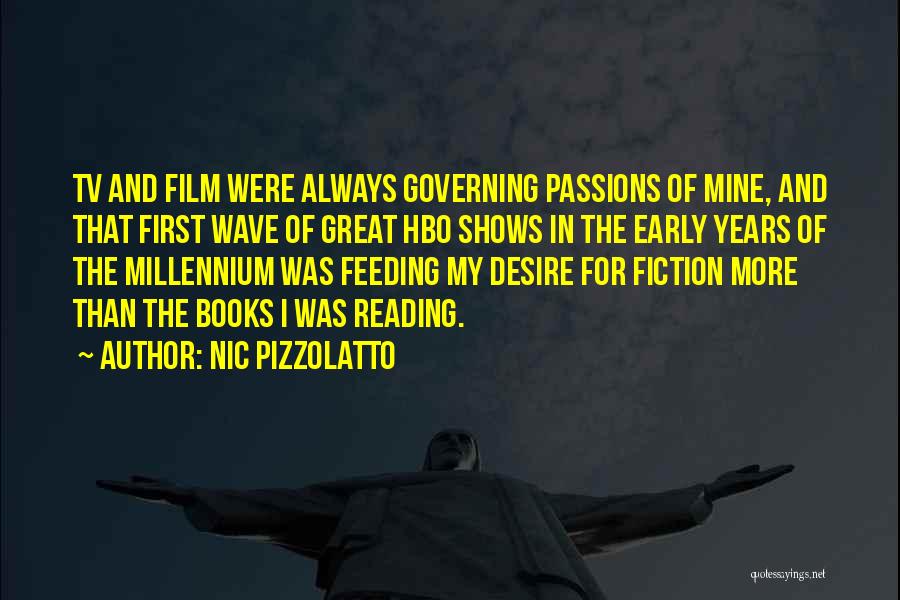
TV and film were always governing passions of mine, and that first wave of great HBO shows in the early years of the millennium was feeding my desire for fiction more than the books I was reading. — Nic Pizzolatto
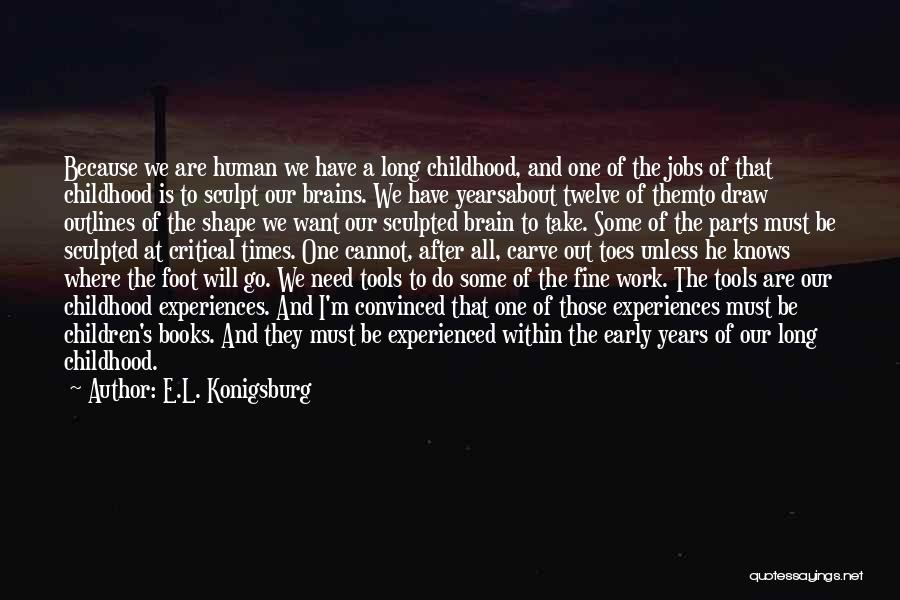
Because we are human we have a long childhood, and one of the jobs of that childhood is to sculpt our brains. We have years
about twelve of them
to draw outlines of the shape we want our sculpted brain to take. Some of the parts must be sculpted at critical times. One cannot, after all, carve out toes unless he knows where the foot will go. We need tools to do some of the fine work. The tools are our childhood experiences. And I'm convinced that one of those experiences must be children's books. And they must be experienced within the early years of our long childhood. — E.L. Konigsburg
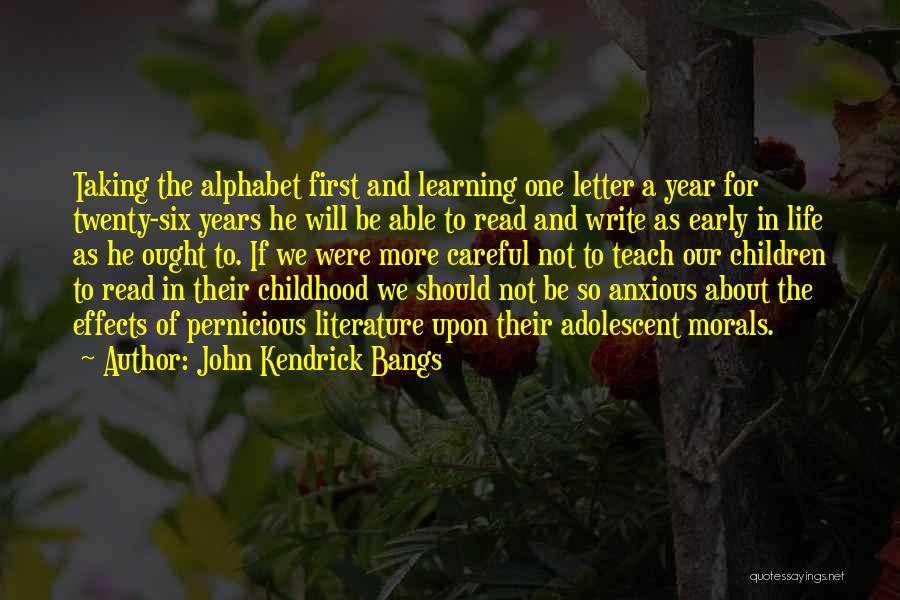
Taking the alphabet first and learning one letter a year for twenty-six years he will be able to read and write as early in life as he ought to. If we were more careful not to teach our children to read in their childhood we should not be so anxious about the effects of pernicious literature upon their adolescent morals. — John Kendrick Bangs
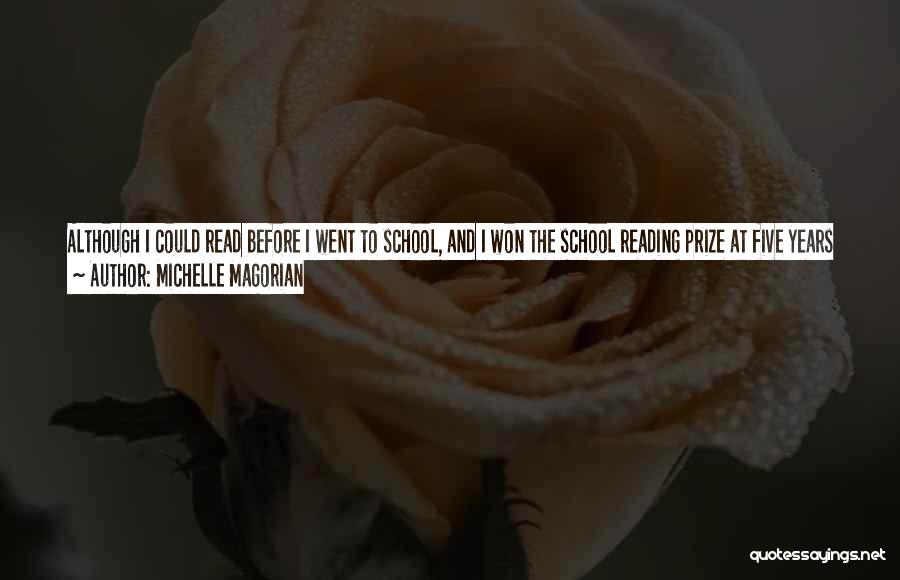
Although I could read before I went to school, and I won the school reading prize at five years old, my early children's stories came from the radio and watching films at a cinema on Saturday mornings in Australia. It wasn't until I was nine years old on a ship returning from Australia that I was introduced to children's books. — Michelle Magorian
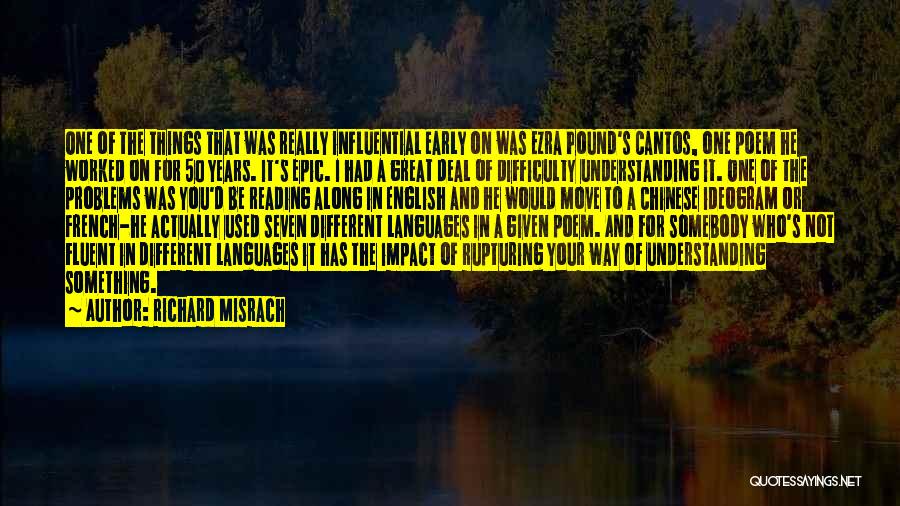
One of the things that was really influential early on was Ezra Pound's Cantos, one poem he worked on for 50 years. It's epic. I had a great deal of difficulty understanding it. One of the problems was you'd be reading along in English and he would move to a Chinese ideogram or French-he actually used seven different languages in a given poem. And for somebody who's not fluent in different languages it has the impact of rupturing your way of understanding something. — Richard Misrach
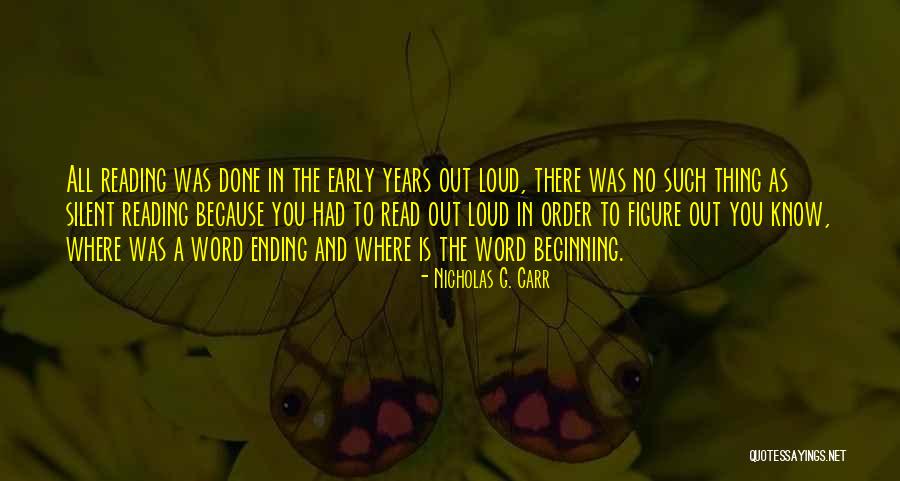
All reading was done in the early years out loud, there was no such thing as silent reading because you had to read out loud in order to figure out you know, where was a word ending and where is the word beginning. — Nicholas G. Carr
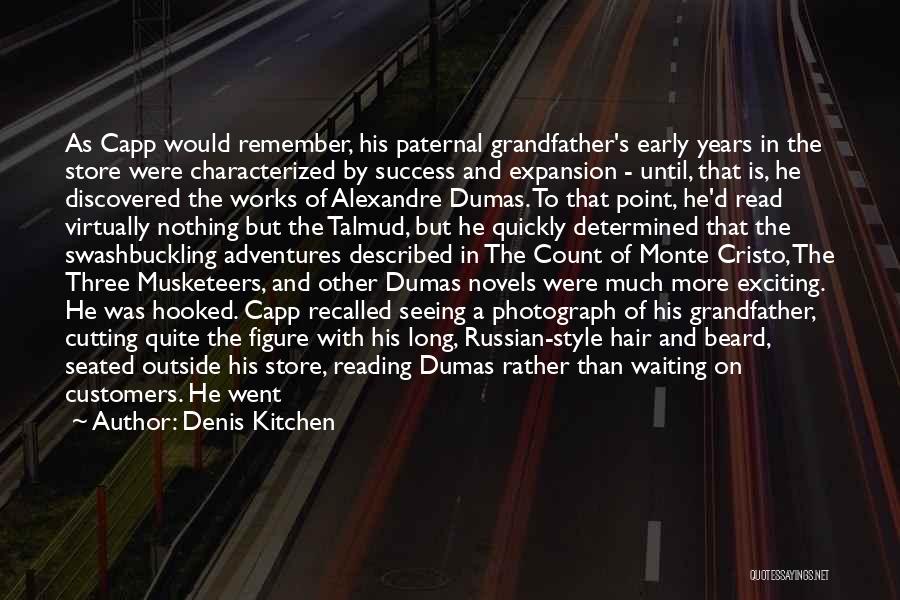
As Capp would remember, his paternal grandfather's early years in the store were characterized by success and expansion - until, that is, he discovered the works of Alexandre Dumas. To that point, he'd read virtually nothing but the Talmud, but he quickly determined that the swashbuckling adventures described in The Count of Monte Cristo, The Three Musketeers, and other Dumas novels were much more exciting. He was hooked. Capp recalled seeing a photograph of his grandfather, cutting quite the figure with his long, Russian-style hair and beard, seated outside his store, reading Dumas rather than waiting on customers. He went out of business, his store purchased by creditors. — Denis Kitchen
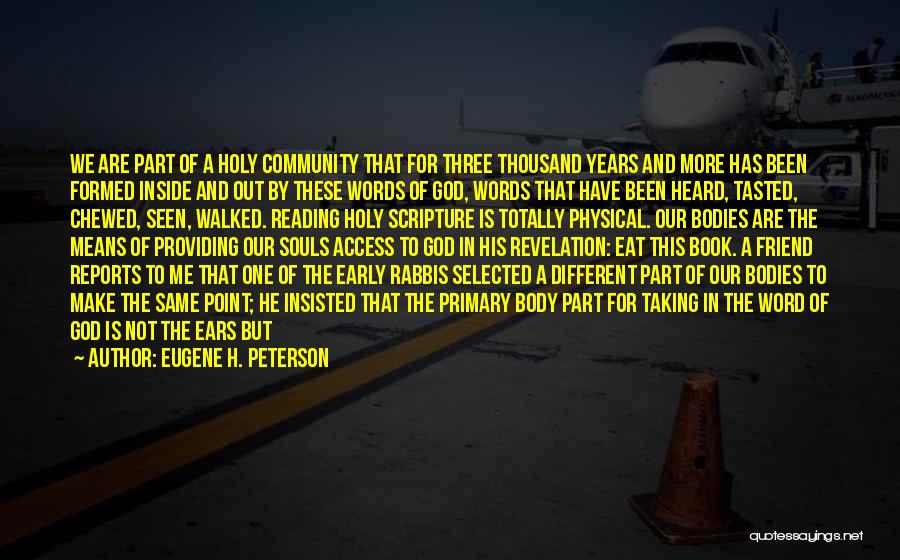
We are part of a holy community that for three thousand years and more has been formed inside and out by these words of God, words that have been heard, tasted, chewed, seen, walked. Reading Holy Scripture is totally physical. Our bodies are the means of providing our souls access to God in his revelation: eat this book. A friend reports to me that one of the early rabbis selected a different part of our bodies to make the same point; he insisted that the primary body part for taking in the Word of God is not the ears but the feet. You learn God, he said, not through your ears but through your feet: follow the Rabbi. — Eugene H. Peterson
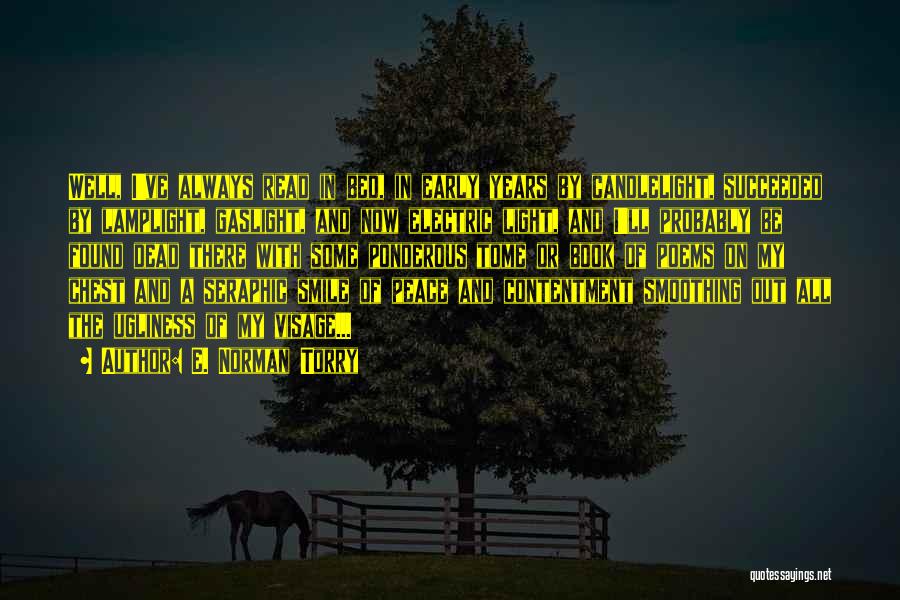
Well, I've always read in bed, in early years by candlelight, succeeded by lamplight, gaslight, and now electric light, and I'll probably be found dead there with some ponderous tome or book of poems on my chest and a seraphic smile of peace and contentment smoothing out all the ugliness of my visage... — E. Norman Torry
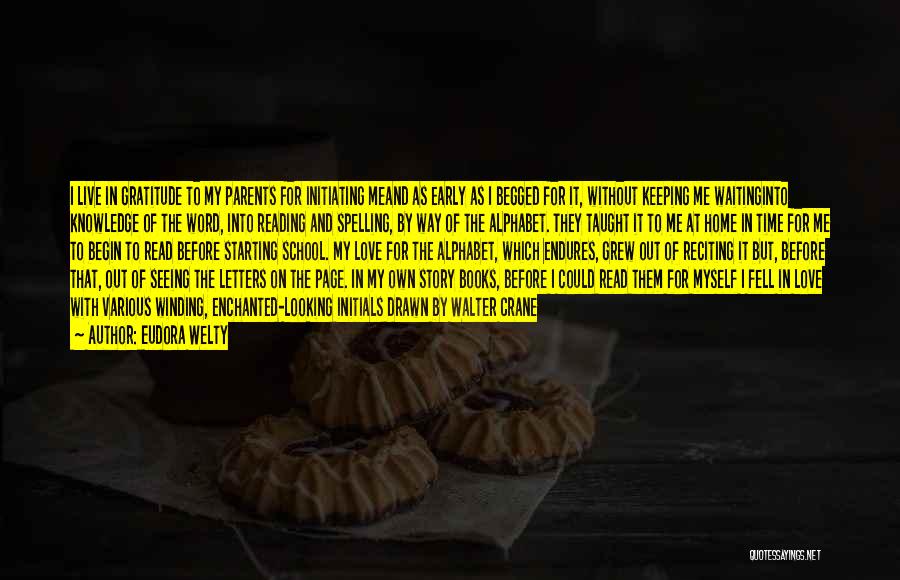
I live in gratitude to my parents for initiating me
and as early as I begged for it, without keeping me waiting
into knowledge of the word, into reading and spelling, by way of the alphabet. They taught it to me at home in time for me to begin to read before starting school.
My love for the alphabet, which endures, grew out of reciting it but, before that, out of seeing the letters on the page. In my own story books, before I could read them for myself I fell in love with various winding, enchanted-looking initials drawn by Walter Crane at the head of fairy tales. In "Once upon a time," an "o" had a rabbit running it as a treadmill, his feet upon flowers. When the day came years later for me to see the Book of Kells, all the wizardry of letter, initial, and word swept over me a thousand times, and the illumination, the gold, seemed a part of the world's beauty and holiness that had been there from the start. — Eudora Welty
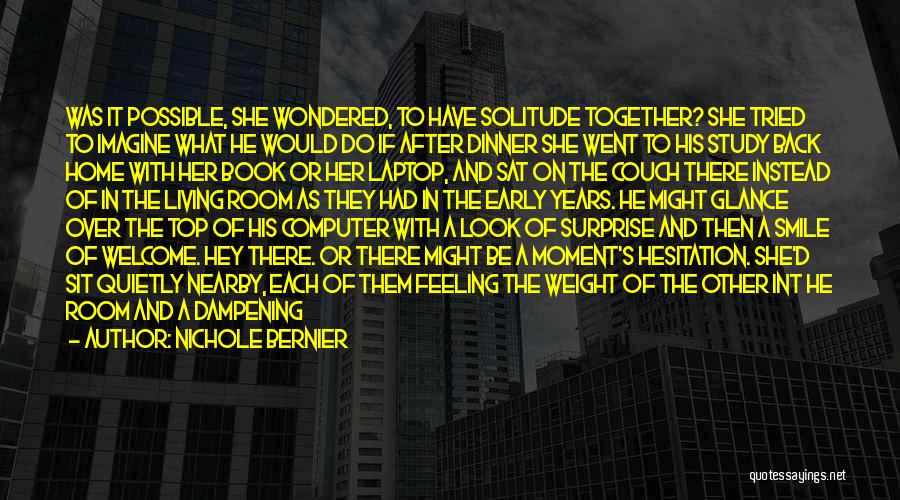
Was it possible, she wondered, to have solitude together? She tried to imagine what he would do if after dinner she went to his study back home with her book or her laptop, and sat on the couch there instead of in the living room as they had in the early years. He might glance over the top of his computer with a look of surprise and then a smile of welcome. Hey there. Or there might be a moment's hesitation. She'd sit quietly nearby, each of them feeling the weight of the other int he room and a dampening of his or her own thoughts, each looking up expectantly when the other shifted in a chair or looked off into the middle distance. She might offer a snippet of commentary about something she was reading, but it would not be easily understood out of context. After an hour or so she would stand and stretch, murmur that sh though she'd call it a night, and the following night she'd go back to the living room. It was a gift, solitude. But solitude with another person, that was an art. — Nichole Bernier
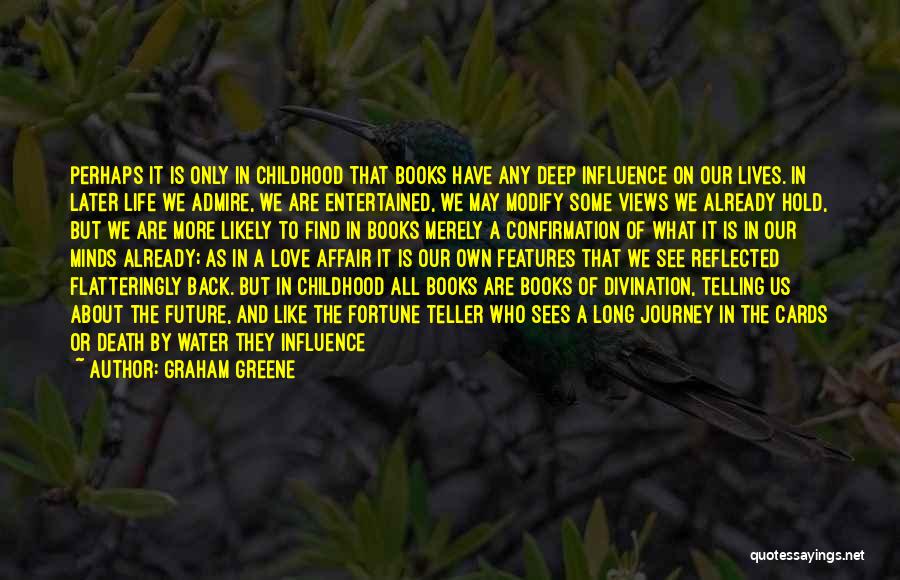
Perhaps it is only in childhood that books have any deep influence on our lives. In later life we admire, we are entertained, we may modify some views we already hold, but we are more likely to find in books merely a confirmation of what it is in our minds already; as in a love affair it is our own features that we see reflected flatteringly back. But in childhood all books are books of divination, telling us about the future, and like the fortune teller who sees a long journey in the cards or death by water they influence the future. I suppose that is why books excited us so much. What do we ever get nowadays from reading to equal the excitement and the revelation in those first fourteen years? ... It is in those early years that I would look for the crisis, the moment when life took a new slant in its journey towards death. — Graham Greene
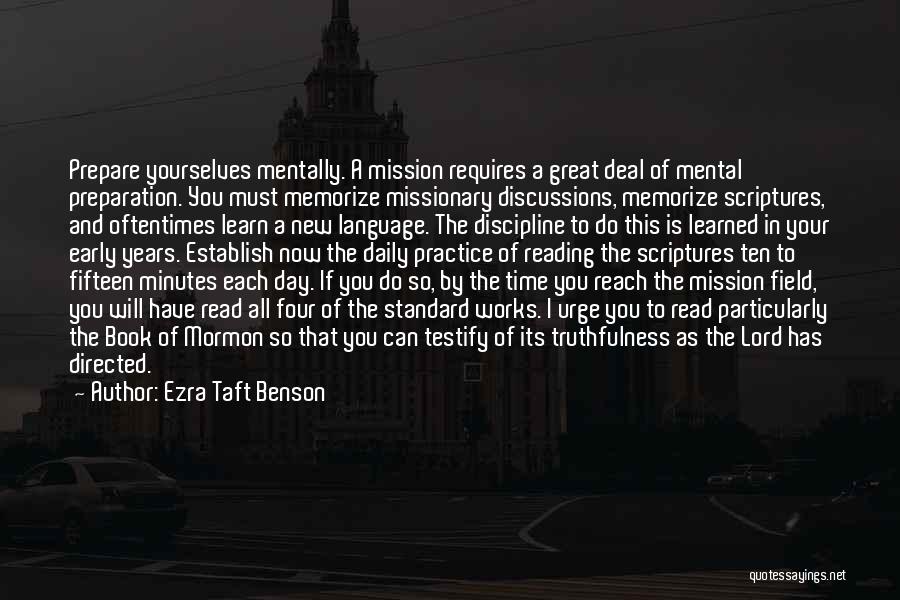
Prepare yourselves mentally. A mission requires a great deal of mental preparation. You must memorize missionary discussions, memorize scriptures, and oftentimes learn a new language. The discipline to do this is learned in your early years. Establish now the daily practice of reading the scriptures ten to fifteen minutes each day. If you do so, by the time you reach the mission field, you will have read all four of the standard works. I urge you to read particularly the Book of Mormon so that you can testify of its truthfulness as the Lord has directed. — Ezra Taft Benson





